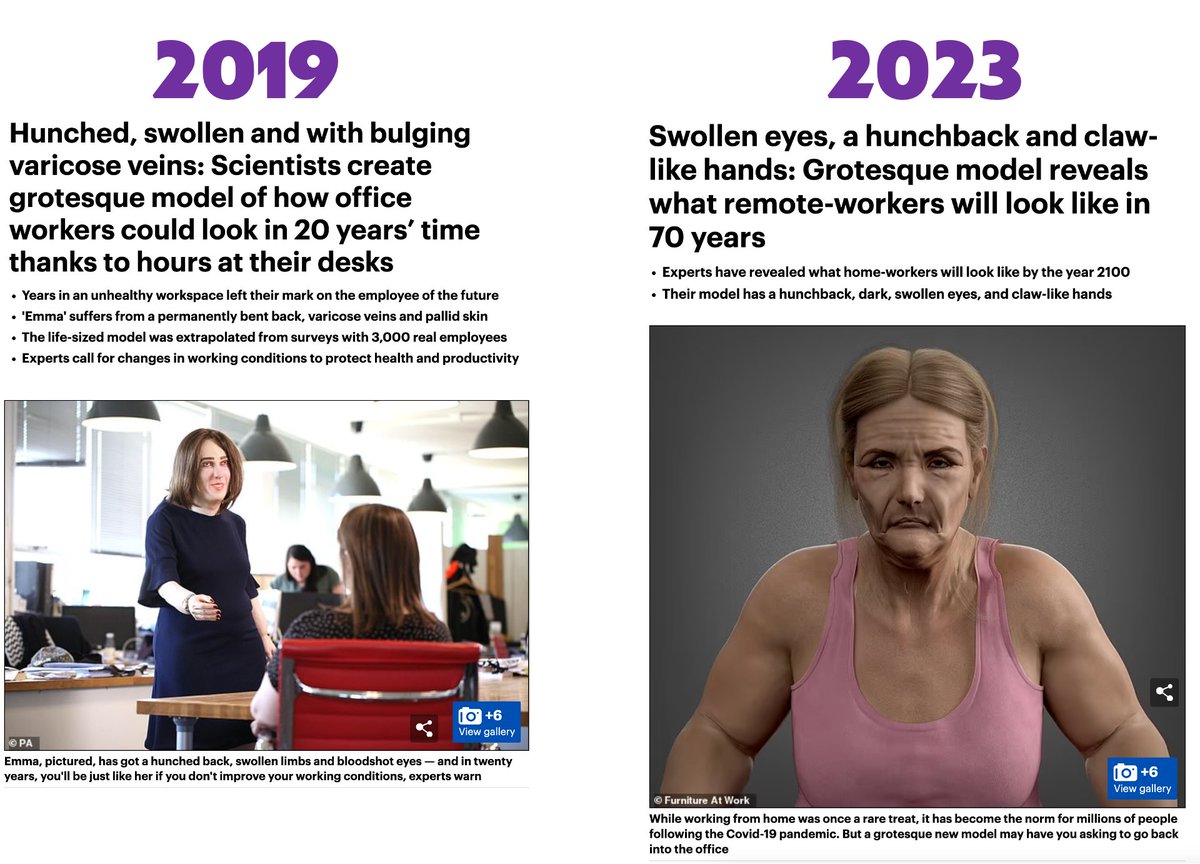Happy looooong Friday (daylight-wise, in the northern hemisphere) | Guess what? Gray open offices filled with loud nerds aren’t conducive to focus, your playlist will effect your productivity, and big tech is messing with your clocks. Let’s dive in. | A CREATIVE, COLLABORATIVE, AND DISTRACTION-FREE UTOPIA? | There's an underlying assumption in many of the return-to-office arguments that corporate offices are the only places where you can focus and magically ideate with other humans. | Dr. Libby Sander, an assistant professor at Bond University in Australia, penned an informative op-ed calling bullshit on this assertion, and did so with research-backed receipts. | "It's hard to feel inspired or creative in a noisy open-plan office with rows of the same desks and chairs. Background noise, noisy co-workers, loud telephone conversations, impromptu stand-up meetings in the middle of the office and interruptions make it very difficult to conduct work that requires concentrated effort." | She goes on to explain that work "state" matters more than "place." For example, walking meetings have been shown to improve divergent creative thinking by 81 per cent, and while libraries provide "a sense of structure and focus by acting as a cognitive scaffold," a lively cafe "may be the perfect backdrop for emotional contagion and collaboration among a team." | Read the whole piece at news.com.au. | MUSIC AND FOCUS | Music in the background can help you focus, but the playlist you choose matters. Dr. Srini Pillay, a Harvard neuroscientist, walks us through his process for choosing the right music for deep work. | "One thing I pay attention to is whether I'm 'over' the music. Several studies have shown that your listening pleasure follows a U-shaped curve. First it increases, but after a while, once your brain gets used to it, the returns are diminishing." | In the brain, the areas responsible for focus are linked to emotion processing centers. So emotionally charged music might hinder concentration. On the other hand, ignoring your feelings can result in lingering negative emotions, impairing your focus. So music that helps you engage with your emotions can also enhance your clarity of thought. | Full article at CNBC. | MANIPULATING ATTENTION SPANS | Today you will (probably) learn a new word from this NYT opinion piece: dyschronometria. Dyschronometria is a condition in which an individual cannot accurately estimate the amount of time that has passed. In not shocking news, big tech is responsible for a new wave of the disorder. | From the Uber to your Kindle, apps spew inflated time estimates that keeps us glued, obedient, and dependent. Your driver is not really 2 minutes away. We're being gaslit by the algorithms, but they are just following our lead. (Your table will be ready in 15 minutes.) | New York Times. | | ELSEWHERE ON THE INTERNETS | | | TWEET OF THE WEEK |  | Paul Fairie @paulisci |  |
| |
Daily Mail (2019)
If you work too much from the office, this is what you'll look like. Daily Mail (2023)
If you don't return to work in the office, this is what you'll look like. |  | | | Jun 16, 2023 | | |  | | | 579 Likes 162 Retweets 24 Replies |
|
| | See you next week,
The EiT crew at Status Hero | |
|